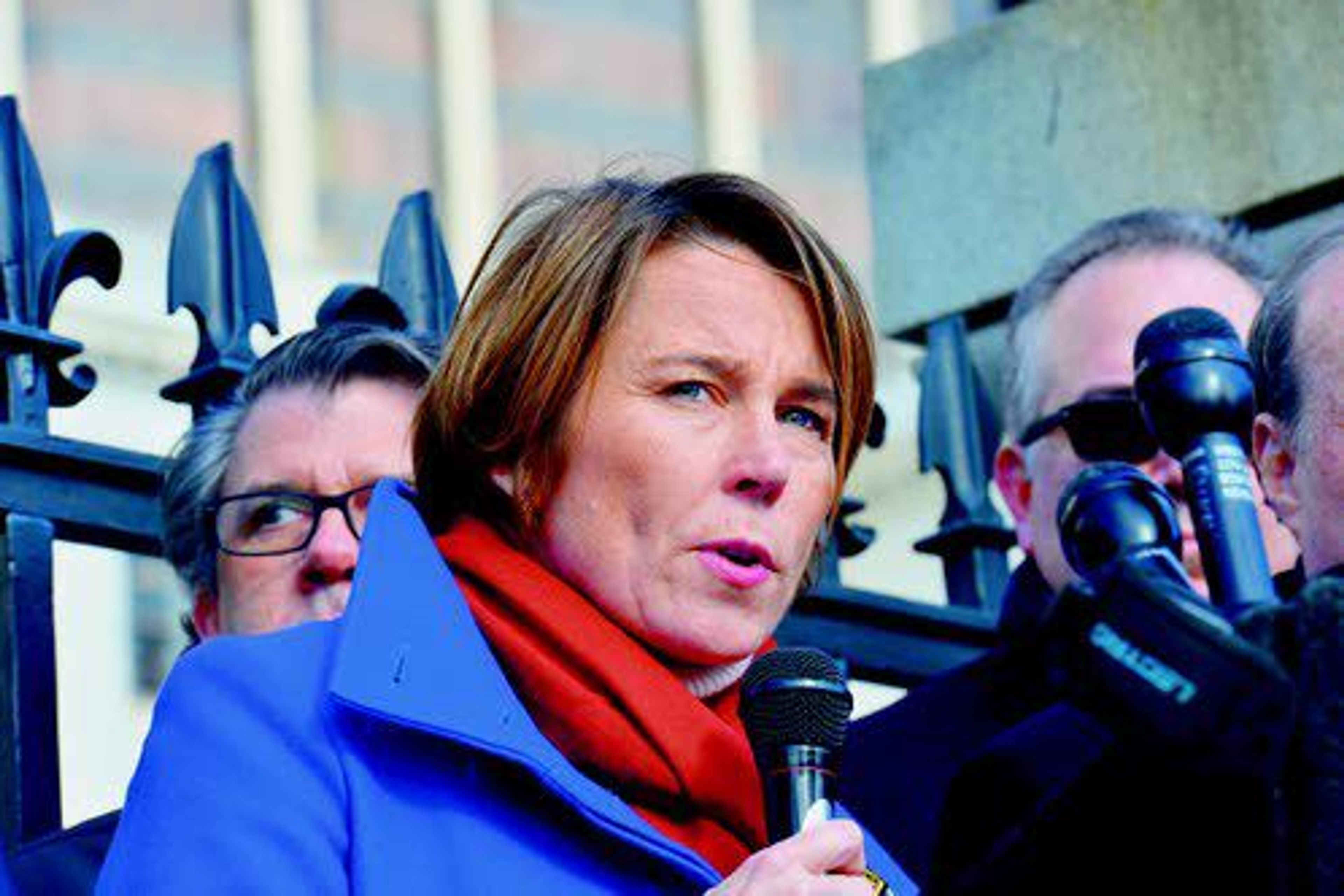Exxon Mobil takes aim at local governments
Energy corporation seeks to derail climate-change lawsuits against it by employing novel strategy
WASHINGTON - Exxon Mobil Corp. and other fossil-fuel giants are taking legal action against local governments, seeking to undermine a key part of their finances - their relationship with lenders.
Exxon Mobil's targets are several California cities and counties that have filed state lawsuits, claiming that the oil and coal industries worked for decades to cover up their roles in climate change and the consequences. The local governments want the industries to pay for damage and adaptation costs resulting from climate change, including sea-level rise and more extreme storms.
Exxon Mobil responded last month by petitioning a state court in Tarrant County, Texas, to subpoena California officials and lawyers involved with the lawsuits. In a novel legal tactic, Exxon Mobil alleges that the local government officials are defrauding buyers of municipal bonds by not disclosing to lenders the climate risks they have claimed in their lawsuits.
It is unlikely that Exxon Mobil will ultimately win in court, but the tactic may succeed in discouraging other cities and states from filing similar lawsuits. That may be the point.
"We knew they were going to deliver a counterpunch, but we didn't know what it would be," said Ryan Coonerty, a supervisor in Santa Cruz County, one of the local governments suing the oil companies. Exxon Mobil's response, he said, "is particularly outrageous and clearly an effort of intimidation."
It is not the first time Exxon Mobil has attempted to pre-empt climate change litigation and investigations that could expose it to court damages. After New York and Massachusetts attorneys general issued subpoenas to investigate Exxon Mobil's practices, the company sued both of them, claiming they were part of politically motivated conspiracy against the company.
"The reasons our investigations came to light was because Exxon actually sued us to shut down our investigations," Massachusetts Attorney General Maura Healey said last week.
Healey called the Exxon Mobil lawsuits an "unprecedented step" to "squash the prerogative of state attorneys general to do their jobs." Since then, no other state has joined New York and Massachusetts in going after the company.
For both sides in the ongoing litigation, the stakes are considerable. Climate activists have been preparing for more than a decade to launch mass litigation against the oil industry and other companies responsible for large emission of greenhouse gases. They compare their litigation to lawsuits that eventually cost the tobacco industry billions of dollars.
But the oil companies are not letting this campaign gain momentum. Along with countersuing the jurisdictions that are suing, they've been getting help from a collection of industry-friendly think tanks and trade associations. Those groups launched their own recent counterattack against the litigating local governments, which include San Francisco, Oakland, Richmond, Imperial Beach, Marin and San Mateo counties and Santa Cruz city and county.
Groups that have received oil industry funding, such as the National Center for Public Policy Research and the Chamber of Commerce' Institute for Legal Reform, have recently criticized the coastal communities in Fox News and Sacramento Bee op-eds. In January, the National Association of Manufacturers hired a former Bush administration lawyer to counter litigation filed against oil refiners and other companies.
The Competitive Enterprise Institute has also entered the fray. The recipient of millions of dollars in funding from Exxon Mobil and the oil industry, CEI has been among the most effective nonprofit groups in spreading doubt about climate change science.
In May 2016, the group purchased a full-page ad in the New York Times criticizing the attorneys general of New York and the U.S. Virgin Islands for subpoenaing documents from CEI and other groups related to the climate investigation of Exxon Mobil. The CEI claimed that its free-speech rights were being violated.
"CEI ran an aggressive campaign to generate backlash against the USVI case," said Kert Davies, founder of the Climate Investigations Center, a group that tracks the oil industry and its nonprofit allies.
It worked. By late June that year, the Virgin Islands dropped its subpoena.
In February, three weeks after Exxon Mobil filed its legal action in Texas, the CEI filed a petition with the U.S. Securities and Exchange Commission urging the regulatory agency to investigate the cities and counties suing Exxon Mobil for bond fraud. "The plaintiff cities and counties apparently describe these climate risks in ways that are far different than how they described them in their own bond offerings," the CEI said in its petition.
The language in the CEI petition mirrors that of Exxon Mobil's. Both, for example, cite Santa Cruz County's claims in court that it will face a 98 percent chance of a "devastating three-foot-flood by 2050," an assertion not included in the county's bond prospectus.
A CEI lawyer, however, said the group's petition to the SEC was based on its own research. "We were reading through some of the cases the cities had brought, and saw it did not match what they were telling investors," said Devin Watkins, who co-wrote the petition.
If the SEC were to investigate and file charges, the California cities and counties could face fines and risks to their bond ratings. Local government officials and their legal advisers, however, say it is preposterous to claim that they have hidden their climate change risks from investors or anyone else.
"If you look on the websites of these jurisdictions, you will see they have done reports on sea level rise and adaptation planning," said Sean Hecht, a law professor at the University of California, Los Angeles, who is advising some of the litigants. "It would take 30 seconds to find those documents."
Several state lawsuits by California jurisdictions have been brought against Exxon Mobil, Chevron and other big oil and coal companies. Litigants include San Francisco, Oakland, Imperial Beach, San Mateo and Marin counties and Santa Cruz city and county.
All the lawsuits seek to hold oil companies responsible for contributing to climate change and attempting to cover up its effects. They all argue that under state law, the companies created a "public nuisance" with their actions and should compensate the local governments for the consequences.
Exxon Mobil did not respond to requests for comment.
In its court filings, Exxon Mobil claims to be the victim of a conspiracy by abusive governments and activists. The company claims the conspiracy began five years ago at a meeting in La Jolla, Calif., and spread to local jurisdictions and state attorneys general.
Jurisdiction is a focus of the fight. Oil and coal industry lawyers want the lawsuits moved to federal court, partly because California has a history of "public nuisance" law that hurts their chances.
Last week, a U.S. district judge in San Francisco, William Alsup, ruled that the Oakland and San Francisco lawsuits must be heard in federal court, a potential setback for the plaintiffs.
But another federal judge who is hearing the Marin and San Mateo case, Vince Chhabria, was somewhat skeptical at a recent hearing about the oil industry's arguments. His ruling could determine whether at least one of the lawsuits is heard in California state court.
In the meantime, Exxon Mobil is continuing to subpoena top officials in Santa Cruz County and other jurisdictions. Coonerty, the county supervisor, said he doubts that Exxon Mobil will prevail but knows his community and others are in for a long fight.
"Any time you have adversaries that have unlimited resources and a determination to win, it is daunting," he said.









